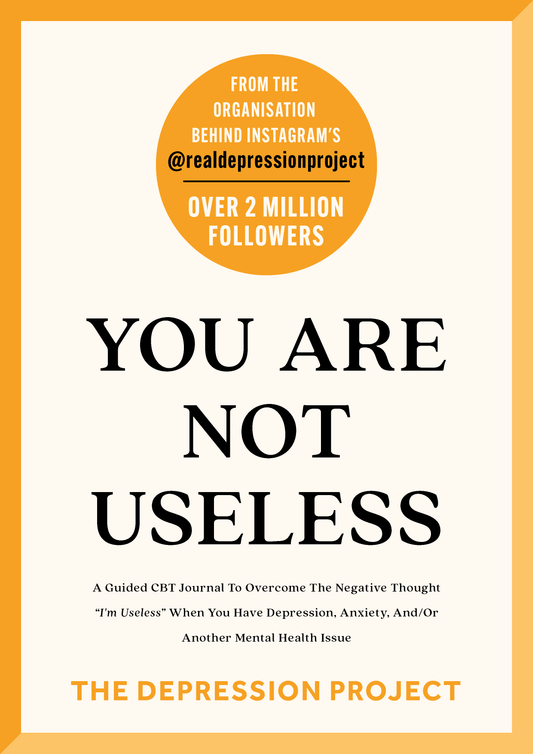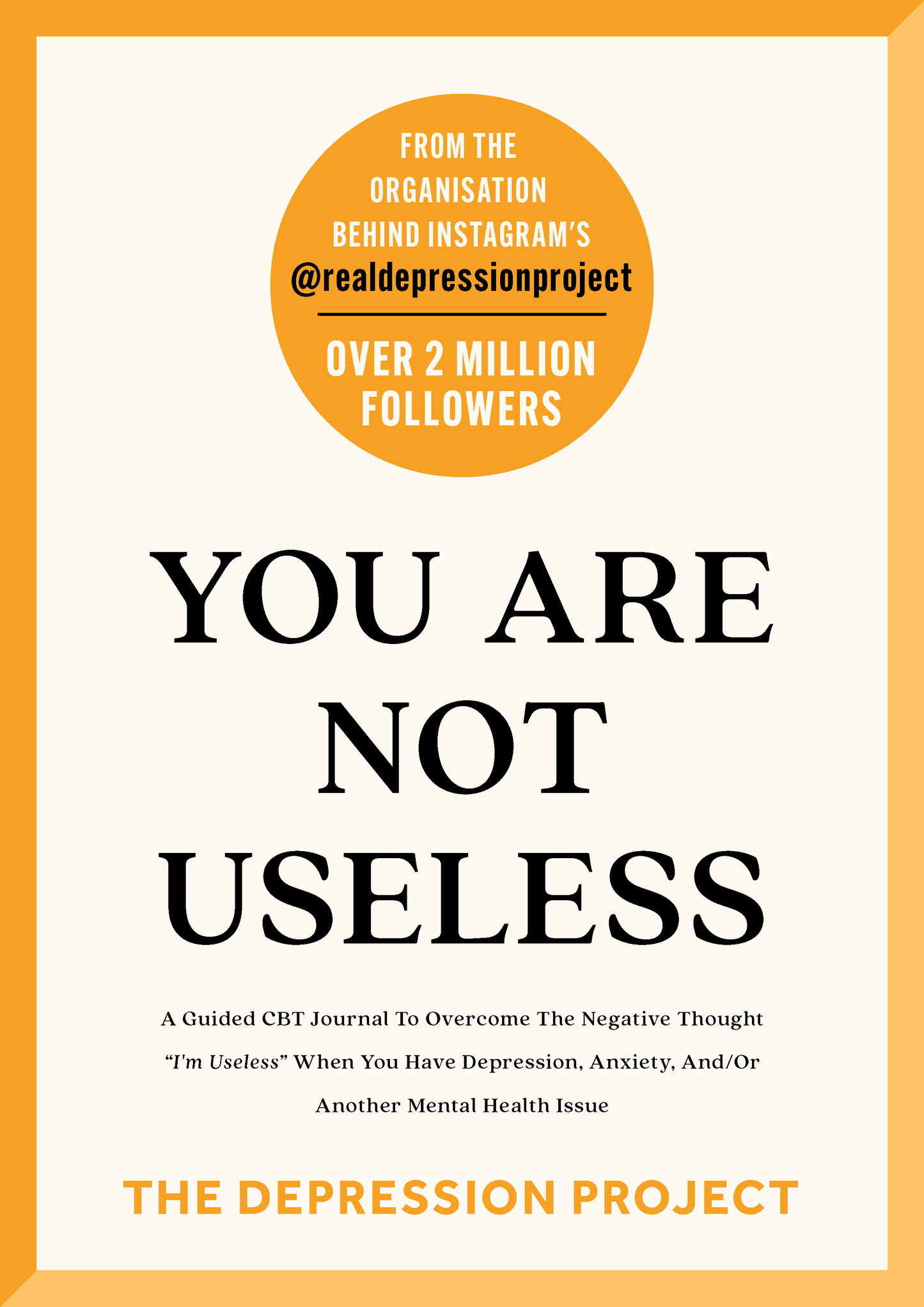
Do you ever tell yourself that you're "useless"?
Sadly, it can be very natural for people with depression, anxiety and/or other mental illnesses to think that they're "useless", because when you're battling these illnesses, it’s common to feel so exhausted, broken and overwhelmed by your symptoms that you struggle to do the things that you normally would, such as:
- Keeping your job or performing up to your potential at work;
- Giving as much to your relationships as you would like to;
- Maintaining healthy habits (such as eating healthily and exercising, for example);
- Doing your chores;
- Taking care of your personal hygiene.
In saying that, though, the negative thought “I’m useless” is just that – a negative thought – as opposed to a fact. And, for this reason, we’ve put together this cognitive behavioural therapy-based journal, in order to help you:
- See for yourself that this negative thought is not true;
- Start feeling better about yourself moving forwards.
Here’s A Breakdown Of Exactly What This Journal Will Cover
PART 1: Cognitive Behavioural Therapy Techniques To Help You Overcome The Negative Thought “I’m Useless” Anytime It Is Triggered
In the first part of this journal, we’ll share with you a wide variety of tried, tested, cognitive behavioural therapy techniques to help you overcome the negative thought “I’m useless” anytime it is triggered (such as when, like we mentioned above, you find it difficult to do the things that you normally would).
Additionally, each technique we share with you will also be accompanied by one or more guided journal prompts - in order to help you think about how you could implement that technique as effectively as possible.
PART 2: How To Cope With Ignorant, Misguided Comments From People That Can Cause You To Think "I'm Useless"
As we hear from members of The Depression Project’s 3,000,000+ person social media community literally every single day, many people who’ve never experienced depression, anxiety, PTSD or another mental illness before don’t really understand these illnesses properly. For example, common misconceptions include that depression isn’t much different to just being “sad”, that anxiety just means “worrying sometimes”, and that OCD is the same as just being “fussy”. And, if this is what some or all of the people around you think, then:
- It’s highly unlikely that they’ll have any idea of just how significantly depression, anxiety, PTSD and other mental health issues can compromise your ability to function.
- Consequently, rather than realising that you finding it difficult to function is natural and understandable given everything you’re going through, they’re instead likely to be judgmental and critical – for example, by telling you that you’re “useless”.
If you can relate, then you likely know that being told that you're "useless" over, and over, and over again can make you more and more likely to believe it (even though it's not true). Consequently, in the second part of this journal:
- We’ll share with you several additional suggestions to help you cope with any ignorant, misguided comments from people that can cause you to think “I’m useless” - in such a way that, moving forwards, these comments will lose a lot of their power to be able to make you think this thought.
- Additionally, we’ll also share with you a handful of journal prompts to help you think about how you could implement these suggestions as effectively as possible.
FAQ #1: Why should I be confident this journal will help me?
This journal is grounded in cognitive behavioural therapy - which in case you don't know, is a leading form of treatment for depression, anxiety, panic attacks, phobias, personality disorders, and a wide range of other mental health issues.
Additionally, this journal is also written with the warmth, care, encouragement and insight that, with 3,000,000+ followers on social media, The Depression Project has become renowned for :)
FAQ #2: What format does this journal come in?
This journal is available in two different formats for you to choose from:
- PDF - which you will be able to download instantly after purchase, and then print out at your home, office or local printer.
- Paperback (if you live in the US or Canada) - which will be delivered to you within 4-8 business days. Shipping costs are US$7.95 within the US and CAD$14 within Canada. This shipping cost is a flat rate, so whether you order one journal, or multiple journals, the shipping cost will be the same (if you would like to, you'll find the option to add one or more other journals to your cart below so that you can save on shipping). Once your order has been shipped, you will be emailed a number so that you can track it.
FAQ #3: What if I give this journal a try but I don't like it?
We're extremely, extremely confident that you're going to find this journal immensely helpful. But, just in case you don't, the PDF version of this journal comes with a 60 Day, No-Questions-Asked, 100% Moneyback Guarantee!

If you have any questions about this journal, then please feel free to click here and contact us so that someone from our friendly team can answer them for you :)
Otherwise, we hope you choose to get this journal, because we know that you're going to find it really, really helpful!
All our love,
The Depression Project Team.
Format Options

